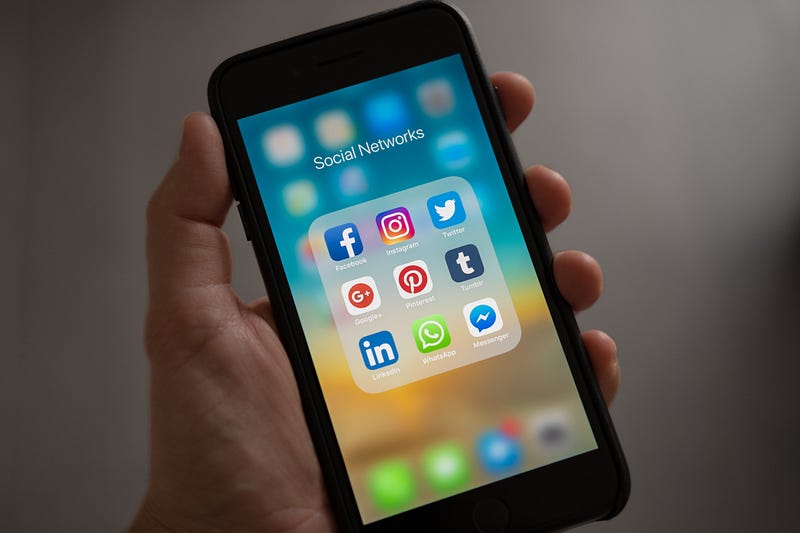generate a new title here, between 50 to 60 characters long
Written on
Chapter 1: Understanding Smartphone Addiction
On average, a person interacts with their smartphone a staggering 2,617 times each day. This statistic, revealed by a research study, serves as a wake-up call for many of us.

How often do we engage with our smartphones?
The answer is approximately 2,617 times a day.
Mobile Touches: A Study on Human Interaction with Technology
Back in 2019, I was actively involved in various meetup groups, organizing weekend hiking trips, as well as participating in product management and startup discussions. One day, I stumbled upon a research article that stated the average person touches their phone 2,617 times daily. This revelation was quite shocking and prompted deep reflection.
A Moment for Self-Reflection
This was a pivotal realization for me, as I recognized how much time I was squandering without achieving anything meaningful. After listing my social media and meetup commitments, I realized I could manage all these activities in less than an hour each day. What an eye-opener!
Before diving into how to cultivate habits that reduce smartphone dependency, let’s explore why minimizing screen time is crucial.
Why Reduce Smartphone Scrolling?
After reading various studies, it's evident that Americans are spending excessive time mindlessly scrolling through their devices. Here are a few reasons why this behavior can be detrimental to health:
Negative Impact on Productivity
Research from the University of Texas indicates that aimless smartphone use, including constant notifications, hinders productivity. This phenomenon is termed "brain drain." Furthermore, a study from the University of California found that it takes over 23 minutes to regain focus after a distraction. Imagine the time lost while distracted by your phone!
Harmful to Relationships
A single notification can pull our attention away during meals or meetings. A study suggests that frequent smartphone distractions can diminish conversation quality. Both verbal and non-verbal cues are vital for meaningful interactions, as highlighted by Dr. Shalina Misrac.
Memory Impairment
Research shows that mindless scrolling can overwhelm our brains, making it harder to retain information and potentially leading to memory issues.
Given these negative effects, it’s clear that reflecting on our smartphone habits is essential.
Chapter 2: My Journey to Overcoming Smartphone Addiction
After several days of reflection, I came to terms with my lack of control over my phone usage. It felt automatic—whether I was engaging in face-to-face conversations, attending meetings, or simply feeling bored, my instinct was to reach for my device.
The Root Cause of My Smartphone Dependency
My attention span had dwindled to less than ten minutes, and I was oblivious to why. Growing up in a remote village where farming was the norm, I was sent to another village for better educational opportunities. I excelled academically, securing a full scholarship in North America. However, I now recognized that my smartphone habits were eroding my focus.
After much introspection, I concluded that I only needed my phone for an hour a day to accomplish productive tasks. I committed to limiting my smartphone use to a maximum of 90 minutes daily.
Understanding the Brain’s Reward System
The issue at hand is psychological. Each quick response from chat groups (like Slack and WhatsApp) triggers a sense of reward in our brains, releasing dopamine. This reinforces the behavior, creating a cycle of dependence.
The Bottom Line
To combat smartphone addiction, my straightforward strategy involves monitoring screen time and tailoring usage to my needs. For me, that means limiting productive tasks to an hour and reserving the remaining time for leisure activities like TikTok or YouTube. After all, I’m human, not a robot.
Recommendation
For anyone looking to enhance their productivity, I highly recommend Cal Newport’s book, Deep Work. Following its principles can lead to substantial achievements in life.
Thank you for reading; please consider following me and giving a few claps!
Video 1: How I Cured My Phone Addiction
In this insightful video, the creator shares their personal journey of overcoming smartphone addiction and offers practical tips for others looking to do the same.
Video 2: How I Cured My Phone Addiction (Permanently)
This follow-up video dives deeper into long-term strategies for maintaining a healthy relationship with technology and avoiding the pitfalls of smartphone overuse.